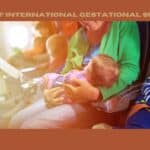The Senate will take up Senate Bill 5 (S.5) this week. This bill, titled the Stem Cell Research Enhancement Act of 2007, will expand federal funding (because of the limitations under the Bush policy) to do human embryonic stem cell research on human embryos donated from in vitro fertilization clinics. If passed, researchers will have more federal funding for research on embryos created by infertile couples who now wish to donate them for research. Of the approximately 400,000 embryos frozen in the U.S., the Rand Study estimates less than 3% are available for research. 1. Because couples don’t wish to donate them to reseach and 2. They are of suboptimal quality.
Mother Jones had a great piece last summer which is worth a read for those interested. Souls On Ice: America’s Embryo Glut and the Wasted Promise of Stem Cell Research.
The Rand Study is here
The Lancet article on suboptimal surplus embryos is “Clinical Challenges in Providing Embryos for Stem Cell Initiatives (July 10, 2004) states, ” Although there are many stored cryopreserved embryos, few are available for research. For example, a recent survey of the status of cryopreserved embryos in the USA showed that just under 3% would be available for research. Additionally, most cryopreserserved-donated embryos are of suboptimal quality. The low quality is mainly because they have been selected against, with the highest quality embryos used in the fresh cycle, and because the cryopreservation process damages the embryos…”
So what exactly would S. 5 do then? It will fuel the cloning researcher’s desire for fresh eggs and fresh embryos. That has always been the end game. So don’t be fooled these next couple of weeks when you hear all the “they are just going to be thrown away anyway” arguments!
I’ll be speaking at the National Press Club this Tuesday morning if you are in town!
Author Profile

- Jennifer Lahl, MA, BSN, RN, is founder and president of The Center for Bioethics and Culture Network. Lahl couples her 25 years of experience as a pediatric critical care nurse, a hospital administrator, and a senior-level nursing manager with a deep passion to speak for those who have no voice. Lahl’s writings have appeared in various publications including Cambridge University Press, the San Francisco Chronicle, the Dallas Morning News, and the American Journal of Bioethics. As a field expert, she is routinely interviewed on radio and television including ABC, CBS, PBS, and NPR. She is also called upon to speak alongside lawmakers and members of the scientific community, even being invited to speak to members of the European Parliament in Brussels to address issues of egg trafficking; she has three times addressed the United Nations during the Commission on the Status of Women on egg and womb trafficking.
Latest entries
 infertilityApril 23, 2024The Rise of International Gestational Surrogacy in the U.S.
infertilityApril 23, 2024The Rise of International Gestational Surrogacy in the U.S. Assisted Reproductive TechnologyApril 16, 2024Founder Jennifer Lahl’s Speech on Surrogacy to the Casablanca Declaration
Assisted Reproductive TechnologyApril 16, 2024Founder Jennifer Lahl’s Speech on Surrogacy to the Casablanca Declaration #BigFertilityFebruary 27, 2024No, Alabama Didn’t Ban IVF
#BigFertilityFebruary 27, 2024No, Alabama Didn’t Ban IVF ArticleSeptember 25, 2023The Little Engine That Could
ArticleSeptember 25, 2023The Little Engine That Could

